
Difference between Freehold vs Leasehold Property in Dubai
Nov 11, 2024
5 minutes read
Dubai’s real estate market stands as a testament to its rapid growth and appeal to investors worldwide. Whether for investment or living, one of the first choices potential buyers must make is deciding between freehold and leasehold properties. Each type has its own set of advantages, limitations, and legal intricacies. To make an informed decision, understanding the nuances of both property types is essential. This guide provides an in-depth comparison to help you choose the right property type for your needs.
What is a Freehold Property?
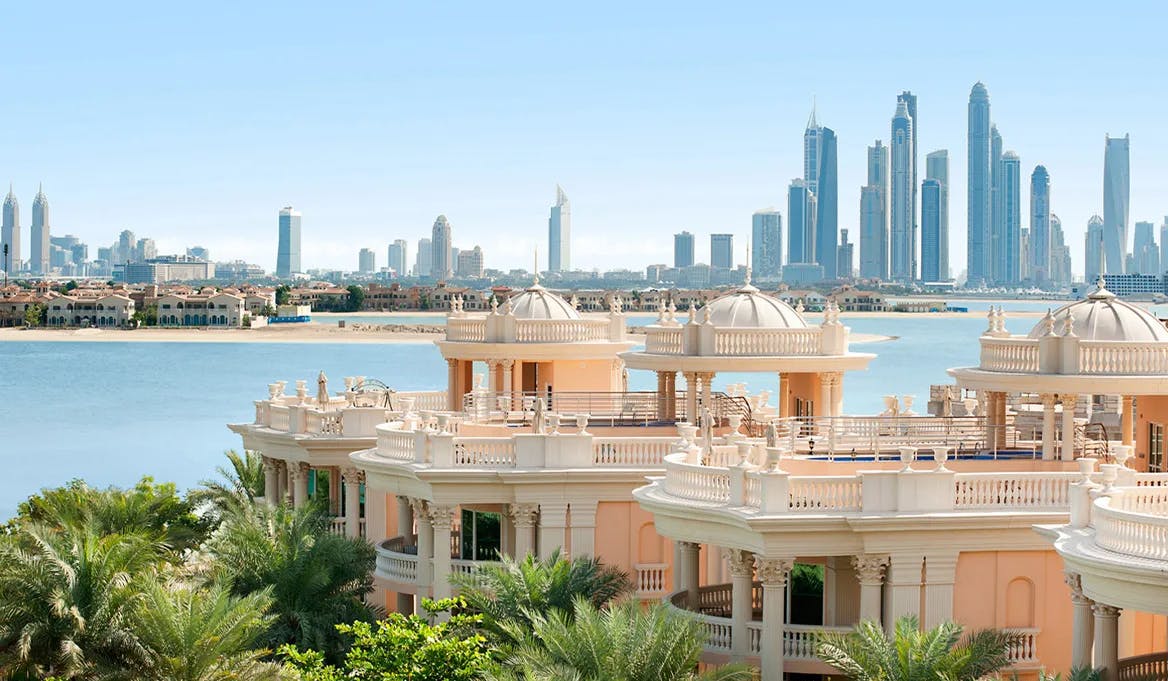
Image Credit: booking.com
A freehold property grants the buyer complete ownership of the property and the land it stands on. This ownership is indefinite, providing the buyer full rights to occupy, lease, or sell the property as they wish. The Dubai Land Department (DLD) oversees freehold transactions, ensuring transparency and legality through the issuance of a title deed. This title deed serves as proof of ownership and protects the owner’s rights in perpetuity.
Benefits of Freehold Ownership
Owning a freehold property offers unparalleled autonomy. The owner has the liberty to make any modifications or renovations to suit their preferences without seeking permission from a third party. Furthermore, freehold properties are often found in some of Dubai's most prestigious areas, such as Downtown Dubai, Dubai Marina, Jumeirah Lake Towers (JLT), and the luxurious Palm Jumeirah. These areas not only showcase iconic architecture and luxury living but also boast an array of top-notch amenities, including world-class shopping malls, fine dining, and recreational facilities.
The ability to rent out freehold properties also offers an additional income stream for investors. With Dubai’s status as a global business and tourism hub, rental demand remains consistently high, making freehold properties appealing to those seeking stable returns. Long-term value appreciation in prime areas further enhances the investment potential of freehold properties, providing an excellent opportunity for capital growth.
Potential Challenges of Freehold Properties
Despite their advantages, freehold properties come with certain challenges. The most notable is the significant initial cost, which can be prohibitive for many potential buyers. In addition to the purchase price, owners are responsible for maintenance, repairs, and renovations. This responsibility extends beyond simple repairs to include larger projects, which can increase overall expenses over time. For investors aiming for shorter holding periods, market fluctuations can impact the value of the property, adding another layer of risk.
What is a Leasehold Property?
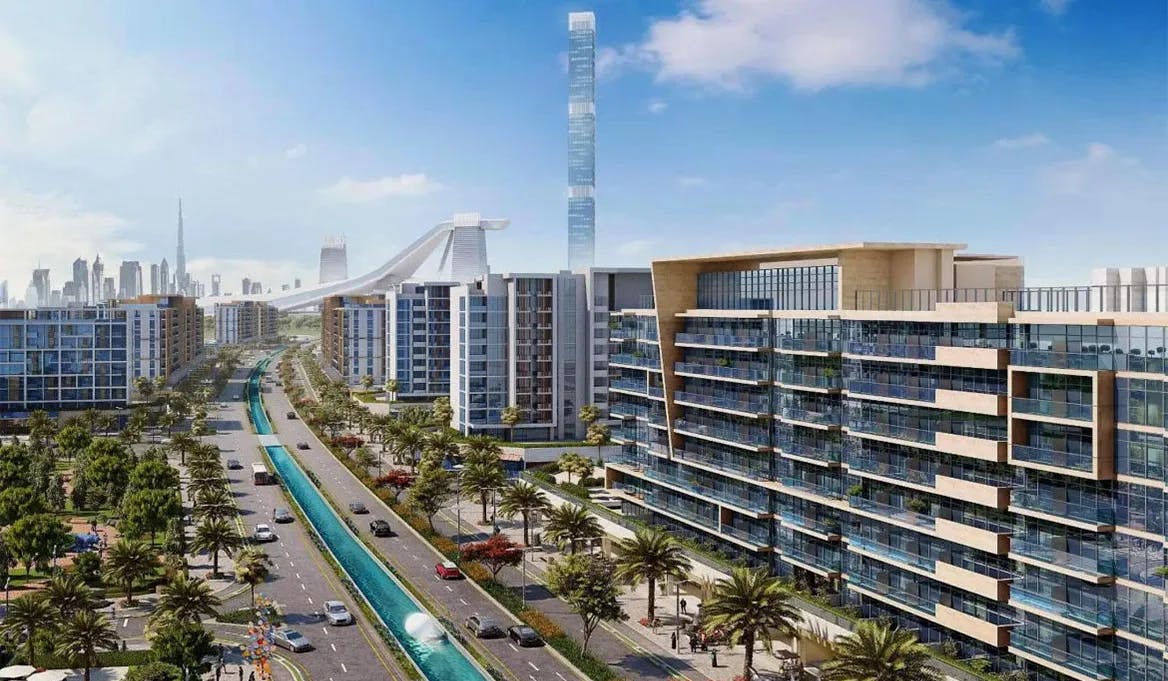
Image Credit: Hi Dubai
Leasehold properties, in contrast, allow buyers to lease the land or property for a fixed period, typically between 10 to 99 years. While leaseholders can use, rent out, or sell their property during this term, the ownership of the land remains with the freeholder. This structure is common across various regions and is a practical choice for those who seek to invest in real estate without the significant upfront cost of freehold ownership.
Limitations and Restrictions of Leasehold Properties
Leasehold properties come with inherent restrictions that buyers must consider carefully. The leaseholder must seek approval from the freeholder before making major changes or renovations. Additionally, at the end of the lease term, the property reverts to the freeholder unless a new agreement is negotiated. This potential limitation can pose a challenge for those seeking long-term investment stability or property to pass down to future generations.
However, these restrictions often come with the benefit of shared responsibilities for larger maintenance tasks. Freeholders may manage significant repairs and general upkeep of the building or land, reducing the burden on leaseholders. Still, understanding the specific terms of a lease is essential to avoid unexpected obligations or disputes.
Advantages of Leasehold Properties
Despite their limitations, leasehold properties offer notable advantages. One key benefit is their affordability compared to freehold properties. Leasehold properties provide a more accessible entry point into Dubai’s real estate market, making them ideal for first-time buyers or those with limited budgets. Additionally, leasehold arrangements in established areas often come with well-maintained facilities, ensuring quality living standards for leaseholders.
The lower initial cost can free up resources for other investments, providing a diversified approach to building wealth. Additionally, since leasehold properties often come with maintenance agreements managed by the freeholder, leaseholders can avoid large, unexpected expenses related to the upkeep of the building or land.
Legal Differences Between Freehold and Leasehold Properties
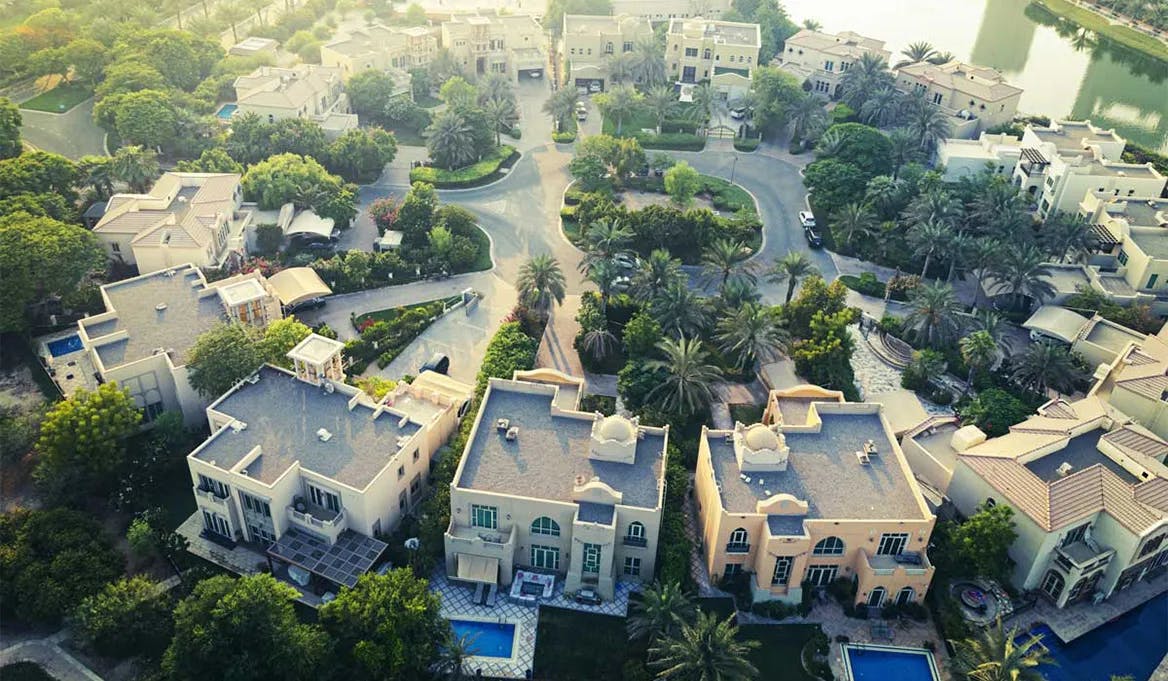
Image Credit: Arabian Business
A solid understanding of the legal distinctions between freehold and leasehold properties is critical. Freehold transactions in Dubai are overseen by the Dubai Land Department, which registers the property under the buyer's name and issues a title deed. This deed guarantees ownership rights and provides a level of security that is particularly appealing to foreign investors. This clarity of ownership ensures that freehold buyers have complete legal control over their investment, free from third-party restrictions.
Leasehold Contracts and Legal Considerations
Leasehold properties, however, involve a more complex legal structure. A leasehold agreement details the relationship between the leaseholder and the freeholder, outlining the rights and obligations of both parties. These contracts specify the lease duration, renewal options, permitted use, and any limitations related to renovations or subleasing. Prospective buyers should thoroughly review leasehold agreements with a legal professional to ensure they understand all conditions and implications before finalizing their purchase.
Read More: Tax Benefits of Buying Property in Dubai
Investment Potential
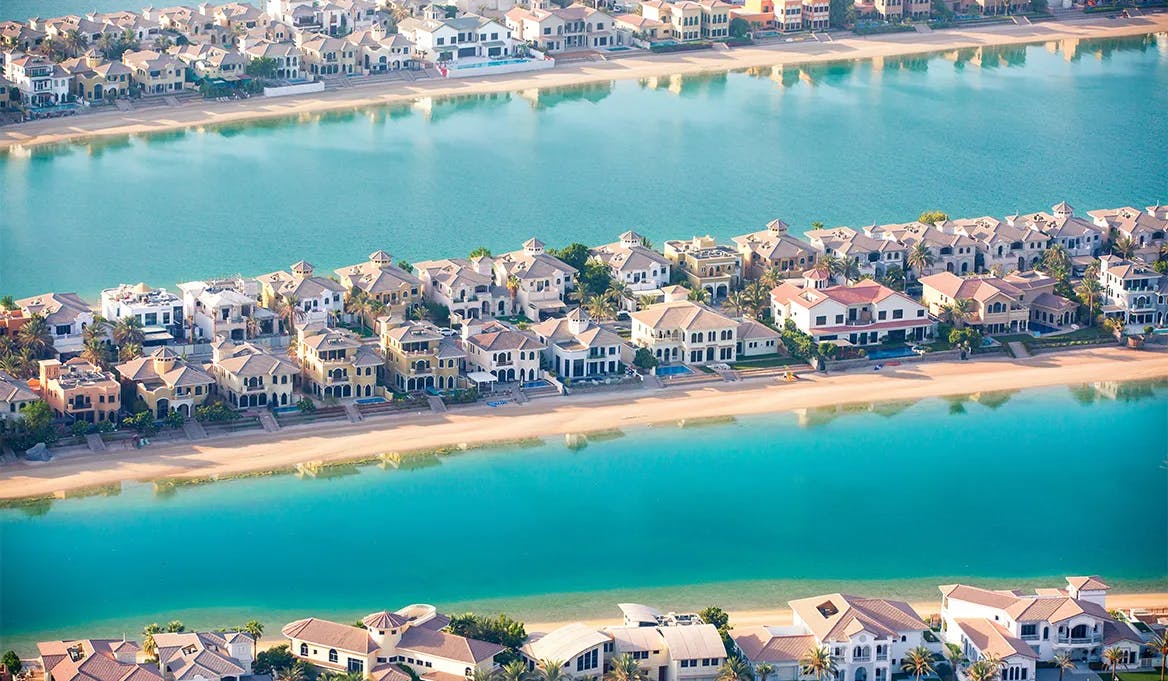
Freehold properties typically offer a higher potential for return on investment (ROI) due to the security of ownership and the flexibility to modify or rent out the property without restriction. High-demand areas like Downtown Dubai, Dubai Marina, and Palm Jumeirah often provide strong rental yields and long-term capital growth. This potential makes freehold properties an appealing option for investors who seek steady income and asset appreciation.
Investment Benefits of Leasehold Properties
Leasehold properties, while not offering the same level of control as freehold, can still be lucrative investments, particularly for those who prioritize affordability and location. Lower purchase prices and well-placed leasehold properties can attract tenants, ensuring a steady rental income. These properties are often in established communities, providing leaseholders with access to schools, hospitals, shopping centers, and recreational facilities without the premium cost associated with freehold properties.
Choosing the Right Property Type
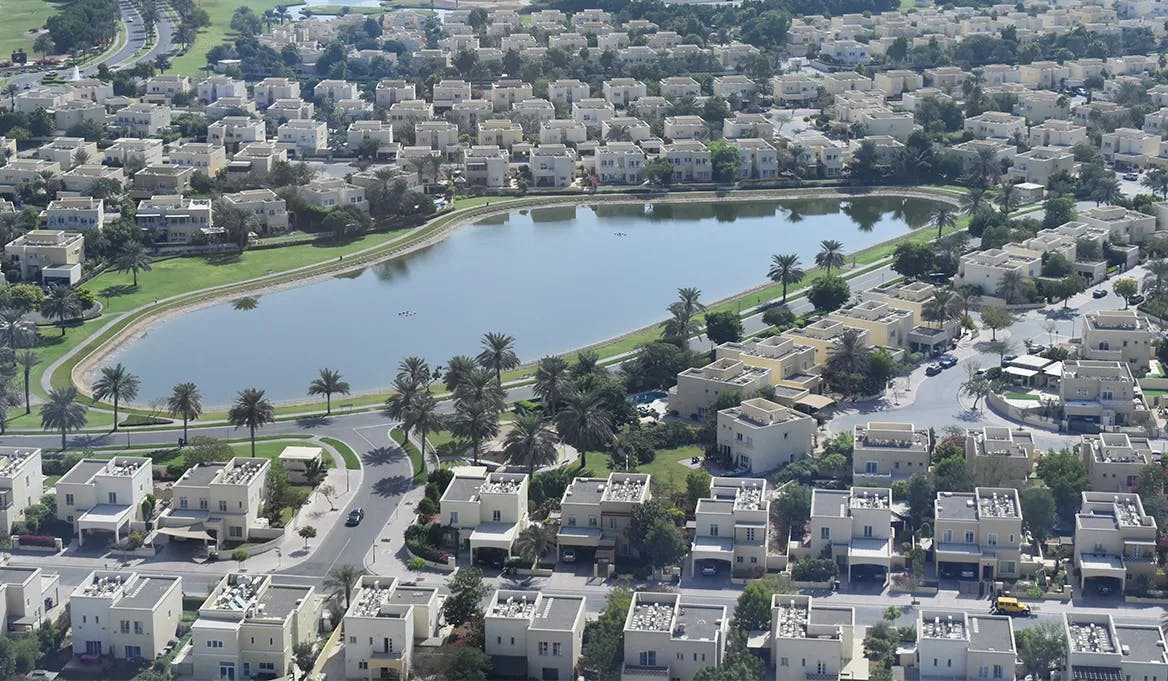
Selecting between freehold and leasehold properties hinges on several factors, including budget, investment goals, and desired level of control. For buyers prioritizing complete ownership, long-term security, and potential for capital growth, freehold properties are the preferred choice. On the other hand, for those who seek cost-effective investments or wish to reside in established communities without the significant upfront expense of a freehold purchase, leasehold properties may be more suitable.
Budget Considerations
Financial capability is one of the most important factors when deciding between freehold and leasehold properties. Freehold properties typically come with a higher initial cost, which can be a barrier for some buyers. These properties also require owners to budget for regular maintenance, repairs, and renovations, further adding to the cost of ownership. However, for those with the financial means, the benefits of freehold ownership often outweigh these additional expenses.
Leasehold properties offer a more budget-friendly alternative. The lower purchase price can make them an attractive option for first-time buyers or investors with limited capital. The shared responsibility for major maintenance costs can also ease financial pressures, allowing leaseholders to better manage their budgets while still enjoying the benefits of property ownership.
Risk Management
Risk management is another critical aspect to consider when choosing between freehold and leasehold properties. Freehold properties, while stable, are subject to market fluctuations that can impact their value. However, they offer long-term ownership security, which can mitigate some risks associated with market volatility. On the other hand, leasehold properties come with the risk of lease expiration, which could lead to potentially costly renewals or the loss of property rights if an extension isn’t agreed upon.
Comparing Advantages and Disadvantages

Freehold properties provide full ownership, the ability to modify and personalize the property, and long-term investment stability. They are generally more expensive upfront and come with full responsibility for maintenance and repairs. However, they offer the potential for higher ROI and capital growth, especially in prime locations known for luxury living.
Leasehold properties, while less expensive and more accessible, come with limitations such as finite lease terms and less control over property modifications. Nonetheless, they provide a more manageable entry point into the real estate market, allowing for rental income and access to established communities at a lower cost.
Steps to Purchase Freehold and Leasehold Properties

Image Credit: Khaleej Times
The process of purchasing freehold and leasehold properties in Dubai involves several steps that prospective buyers should understand. For freehold properties, the journey begins with researching potential locations and property types. This step is often facilitated by real estate agents or online property platforms. Once a suitable property is found, both parties sign a Memorandum of Understanding (MOU) outlining the terms of the sale, followed by a deposit payment. The buyer must then register the property with the Dubai Land Department and pay applicable transfer fees. The final step involves the issuance of the title deed, which legally certifies ownership.
Purchasing a Leasehold Property
Purchasing a leasehold property requires a thorough understanding of the lease agreement. Prospective buyers should review the contract for lease duration, renewal options, permitted property use, and any restrictions on alterations. Consulting a legal expert is highly recommended to ensure that all terms are clear and agreeable. After both parties agree to the terms, the lease must be officially registered to validate the transaction. Leaseholders must also adhere to the terms of their lease to maintain their rights and avoid potential disputes.
Considerations for Foreign Buyers
Dubai’s real estate market is particularly welcoming to foreign buyers. Freehold properties in designated areas are available for purchase by non-residents, offering a secure way to invest in one of the world’s most dynamic cities. The Dubai Land Department oversees these transactions, ensuring that foreign buyers receive title deeds that guarantee full ownership. This policy supports the city’s goal of attracting international investment and boosting economic growth.
Leasehold properties are also accessible to foreign buyers, often with fewer restrictions. However, foreign buyers should be aware of the lease terms and potential limitations that come with leasehold ownership. Consulting with a real estate professional and a legal expert is advisable to navigate the process smoothly and make an informed decision.
Final Thoughts on Choosing Between Freehold and Leasehold
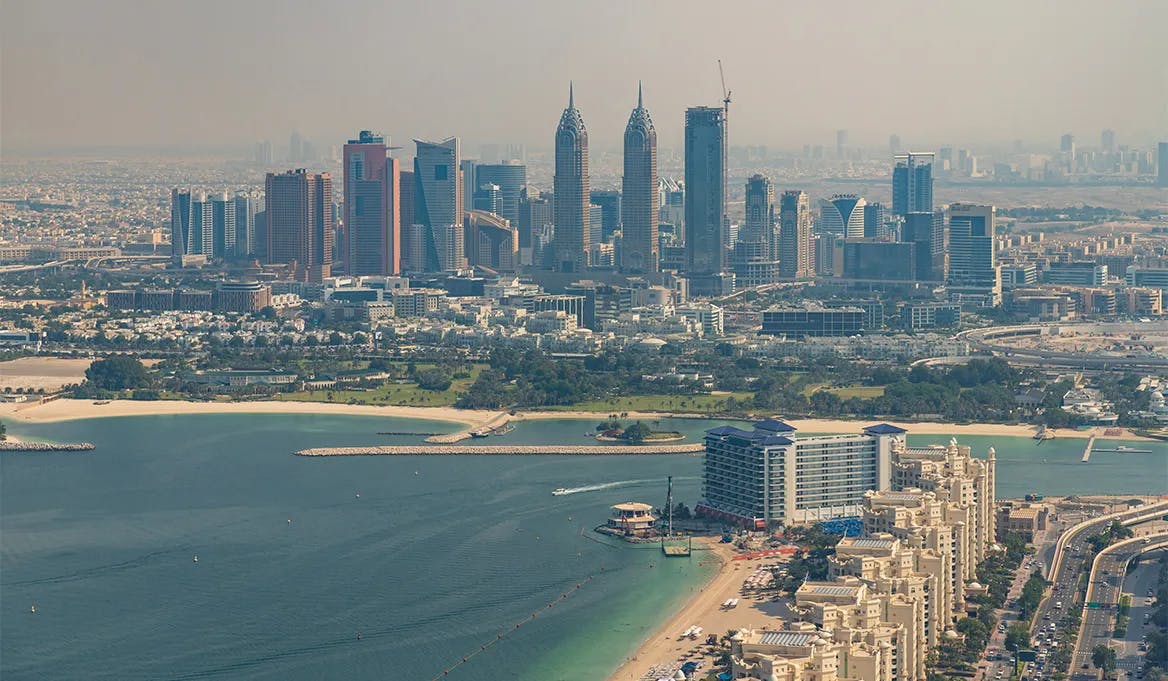
Choosing between freehold and leasehold properties ultimately depends on your personal circumstances, financial capability, and long-term goals. Freehold properties offer complete control, ownership security, and potential for high ROI, while leasehold properties provide more affordability and access to prime locations, albeit with certain limitations. By carefully weighing the benefits and drawbacks of each, potential buyers can find the best fit for their needs in Dubai’s dynamic real estate market.
Ready to Make Your Move in Dubai's Real Estate Market?
Whether you're looking for the complete ownership of a freehold property or the affordable flexibility of a leasehold, Dubai offers a wealth of opportunities. Let us help you find the perfect property that fits your lifestyle and investment goals. Contact us today to explore our wide range of properties and take the next step towards securing your dream home or investment in Dubai!



